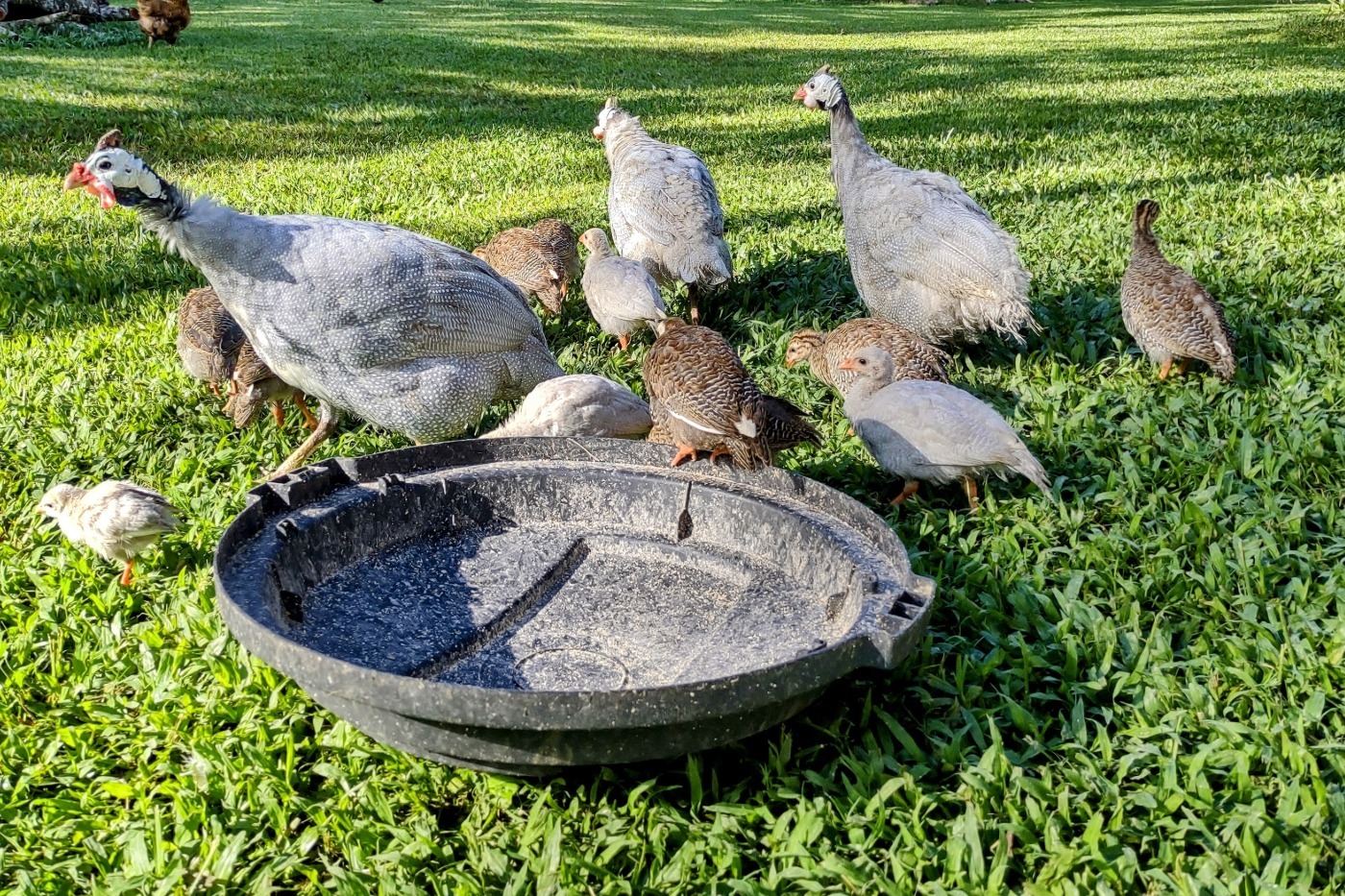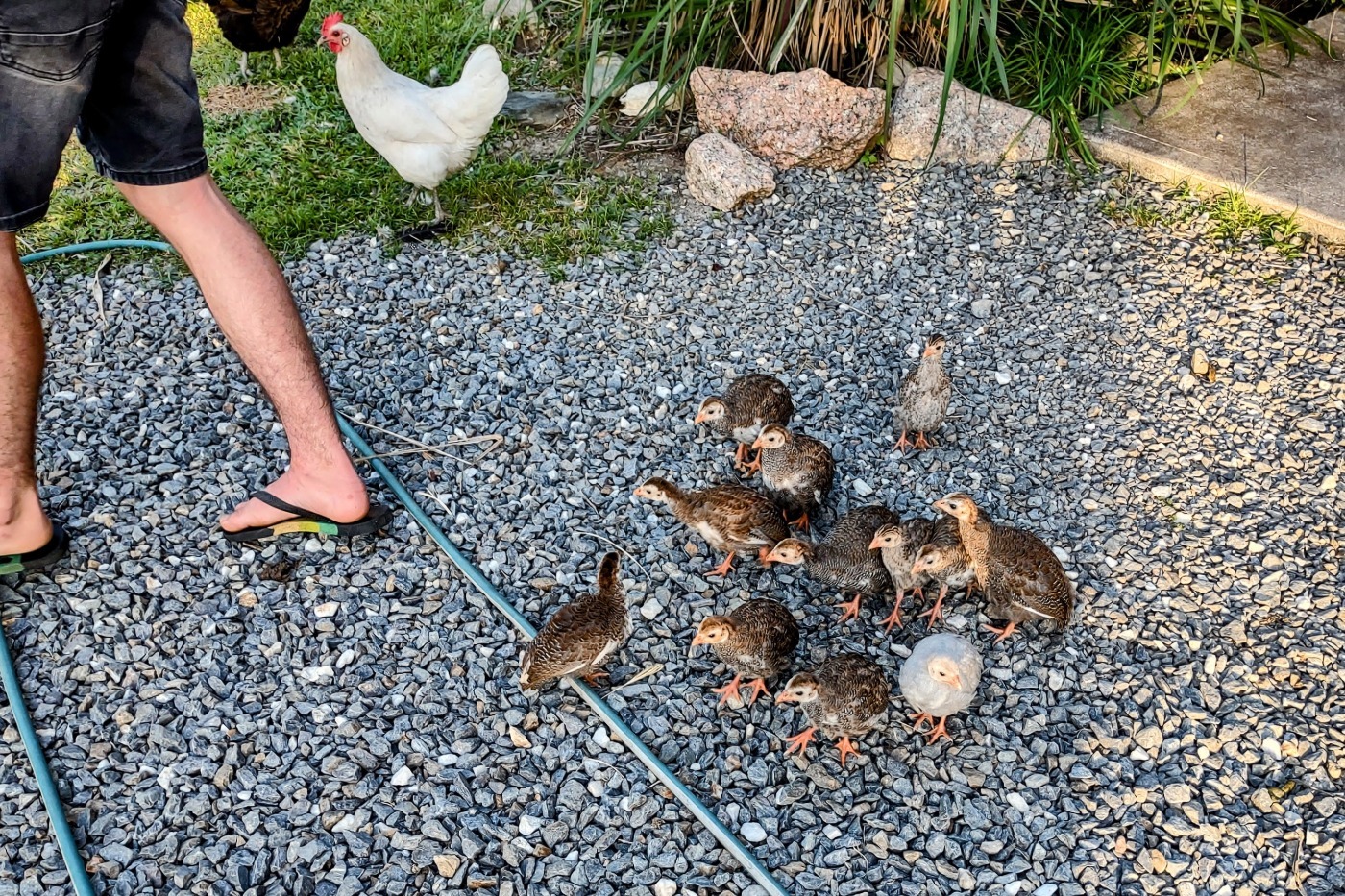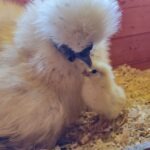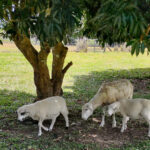This post may contain affiliate links.
I love my guinea fowl, I think they are beautiful, fun to watch, and ,allegedly, they keep ticks down. But keeping these African birds comes with a whole set of problems that aren’t there with chickens. We’ve had guinea fowl on our homestead for over 4 years now. Here are our findings.

Problems of Keeping Guinea Fowl
Are guinea fowl more trouble than they’re worth? Maybe.
How to keep guinea fowl? It’s pretty similar to keeping chickens, just feed them, provide fresh water and give them a secure place to roost at night. Most predators that eat chickens will eat guinea fowl. There are myths about guinea fowl keeping snakes, coyotes, even foxes away. They do not. We regularly have snakes around our property, and snakes have killed our birds.
They require a higher protein feed as babies (keets). You’ll need to feed them a game bird starter.

We’ve had very little sickness and disease with the guinea fowl, we have never had to worm them or treat them for any diseases.
You can keep guinea fowl with chickens, we do. Our system is to let chickens and guinea fowl roost together at night, the chickens free range by day. Guinea fowl that free range will get extra protein from bugs, we can then give them the same food as the chickens. In the coop we supplement with protein, maggots, fish, eggs (cooked) or anything we have.
If you’re searching “how to keep guinea fowl on your property”. You really can’t in any reasonable or low-cost way. You’d need a lot of close-mesh fencing and clipped wings. Like us, you may have to build a large predator-proof coop for your fowls, with plenty of space to run.
Guinea Fowl Love To Roam onto Roads
We’re on 5 acres, fenced, and for the first few years, our guinea fowl never strayed onto the road, until the day they did. Once they found the road and knew it was there, filled with roadkill bugs, it was very hard to keep them away.
They can easily cause accidents and people complain. We know, we have a neighbour who complained. There was nothing we could do to contain free-range birds 100% of the time, so we had to build a secure coop and keep them locked up. It makes me very sad to have to keep animals locked up.
I hope you have better neighbours.
Guinea Fowl are Noisy
Screaching alarm calls and the “buckwheat” calls of the females are pretty much incessant. It doesn’t bother us much, but it may bother your neighbours.
If they decide to hang out on your deck or balcony, it gets very noisy. Worse, they could choose to hang out at your neighbours’ house. Guinea fowl are generally considered noisy birds and you couldn’t keep them in a suburban backyard, you need space.
Guinea Fowl Fly Well
Guinea fowl can fly much better than chickens; they fly over fencing and into trees. This means that if you’re a little late putting the birds away at sundown, they’ll be high up in a tree and you’ll never get them into the coop.
As a point of interest, guinea fowl naturally roost a short time earlier than chickens. This has been our experience.
Guinea fowl in trees are very likely to be eaten by snakes or other predators.
You can clip their wings, but guinea fowl are very difficult to catch.
Guinea Fowl Are Hard To Get Back Into The Coop at Night
Some people “train” their guinea fowl to roost in the coop at night, or so they say. Ours never did. We would feed them in the coop around 4 pm and lock them in for the night.
Guinea Fowl Belong in Africa
Guinea fowl love a hot, open savannah. They don’t like cold or wet conditions. Long wet grass is a problem if they start hatching keets, they will die.
If you live in a cold climate, they often end up with frostbite in their feet. I would strongly suggest that you do not keep guinea fowl in the cold.
Guinea Fowl Love To Fly into Fencing
Guinea fowl do not see well in the dark. As a result they can fly into the walls of their enclosure. We’ve found several with broken necks from doing just this. Some people use red lights to try and help with this. You don’t want to disturb their circadian rhythmns with regular lights.
Guinea Fowl Are Bad Mothers
Guinea fowl like to lay eggs in rough grass or undergrowth in a hidden spot on your property. They are communal nesters. Multiple females lay in the same spot until about 30 eggs accumulate. Then one of them will start to sit.
A bird sitting out in the open is a sitting target for predators, but, maybe surprisingly, we’ve never had a sitting bird taken as prey.
Once the eggs hatch the bird will go about it’s business, running, as usual, and the little keets often can’t keep up or get lost in the undergrowth.
To stop this happening we usually take the eggs or keets for their own safety.
That’s a lot of negatives, there are positives of keeping guinea fowl too, they don’t destroy your garden nearly as much as chickens. They’re less messy than geese or ducks, and less prone to eating your vegetable crops. They lay a lot of eggs and both birds and eggs are good to eat, you can also hatch keets with ease to maintain your flock, or to sell. They do eat ticks, but we find that other fowls, even the chickens are better at this, I’ve seen chickens pick ticks off the cow. They were my favourite birds for a whole lifetime, it was my dream to own them. Now, sadly, having to keep them in a coop, they make me sad.







